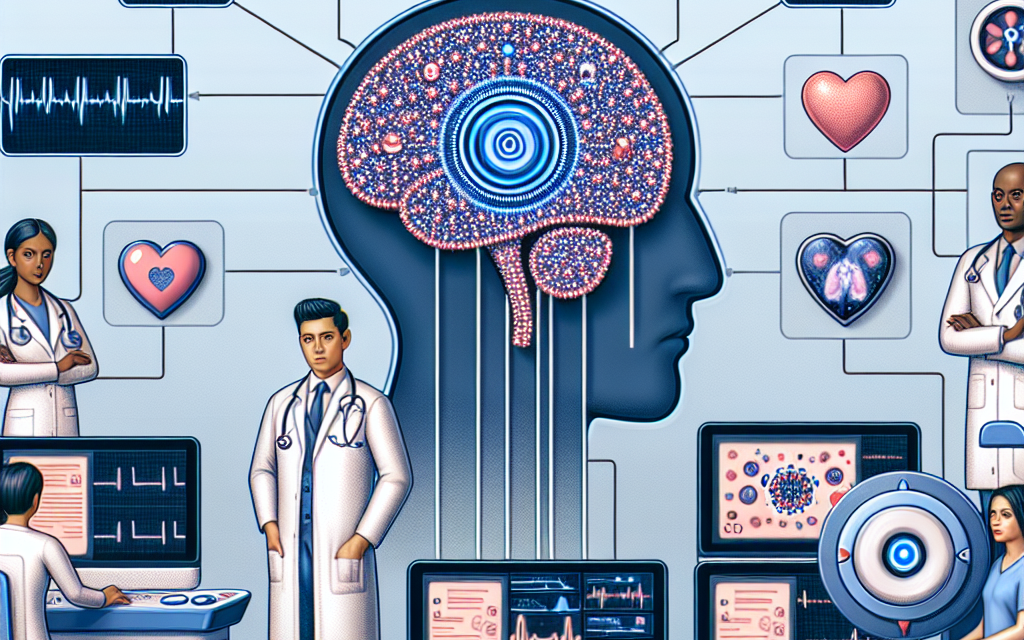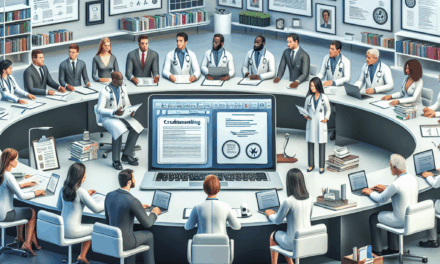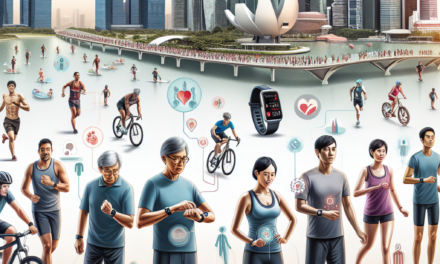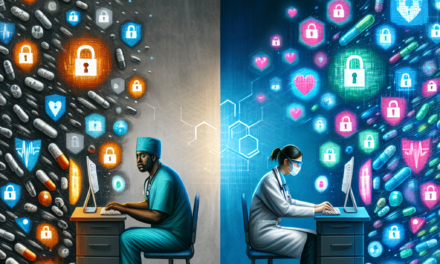Unlocking the Potential of Generative AI in Healthcare Organizations Today
Generative AI is revolutionizing various sectors, and healthcare is no exception. As organizations strive to improve patient outcomes, streamline operations, and reduce costs, the integration of generative AI technologies is becoming increasingly vital. This article explores the multifaceted applications of generative AI in healthcare, examining its potential to transform patient care, enhance research and development, optimize administrative processes, and more. We will delve into five key areas where generative AI is making a significant impact, supported by case studies, statistics, and expert insights.
1. Enhancing Patient Care through Personalized Medicine
One of the most promising applications of generative AI in healthcare is its ability to facilitate personalized medicine. By analyzing vast amounts of patient data, generative AI can help healthcare providers tailor treatments to individual patients, improving outcomes and minimizing adverse effects.
Personalized medicine relies on understanding the unique genetic makeup, lifestyle, and environmental factors that influence a patient’s health. Generative AI can process genomic data, electronic health records (EHRs), and other relevant information to identify patterns and predict how different patients will respond to specific treatments.
- Case Study: Tempus – Tempus is a technology company that uses AI to analyze clinical and molecular data to help physicians make more informed treatment decisions. By leveraging generative AI, Tempus can provide oncologists with insights into the most effective therapies for individual cancer patients based on their genetic profiles.
- Statistical Insight – According to a study published in the journal Nature, personalized medicine approaches can lead to a 30% increase in treatment efficacy compared to traditional methods.
Generative AI also plays a crucial role in drug discovery, where it can simulate how different compounds interact with biological systems. This capability allows researchers to identify promising drug candidates more quickly and efficiently than traditional methods.
Moreover, generative AI can assist in developing personalized treatment plans by analyzing patient data to recommend lifestyle changes, medication adjustments, and other interventions tailored to individual needs. This holistic approach not only improves patient satisfaction but also enhances adherence to treatment protocols.
2. Streamlining Research and Development
The healthcare industry is characterized by lengthy and costly research and development (R&D) processes. Generative AI has the potential to streamline these processes, making it easier for organizations to bring new treatments and therapies to market.
One of the primary ways generative AI enhances R&D is through predictive modeling. By analyzing historical data from clinical trials, generative AI can identify factors that contribute to successful outcomes, helping researchers design more effective studies. This capability can significantly reduce the time and resources required for clinical trials.
- Example: Insilico Medicine – Insilico Medicine uses generative adversarial networks (GANs) to design new drug candidates. Their AI-driven platform has successfully identified novel compounds for diseases such as fibrosis and cancer, reducing the time needed for drug discovery from years to months.
- Statistical Insight – A report from the McKinsey Global Institute estimates that AI could potentially reduce R&D costs by 30-40% in the pharmaceutical industry.
Generative AI can also facilitate the analysis of complex biological data, such as genomics and proteomics. By generating hypotheses and identifying correlations within large datasets, AI can help researchers uncover new insights into disease mechanisms and treatment targets.
Furthermore, generative AI can assist in the design of clinical trials by optimizing patient recruitment strategies. By analyzing EHRs and other data sources, AI can identify suitable candidates for trials, ensuring that studies are adequately powered and representative of the target population.
3. Optimizing Administrative Processes
Healthcare organizations often face significant administrative burdens that can detract from patient care. Generative AI can help streamline these processes, improving efficiency and reducing costs.
One area where generative AI can make a substantial impact is in the management of EHRs. By automating data entry and documentation processes, AI can free up healthcare professionals to focus on patient care rather than administrative tasks. This not only improves job satisfaction but also enhances the quality of care provided to patients.
- Case Study: Nuance Communications – Nuance’s AI-powered solutions help healthcare organizations automate clinical documentation, allowing physicians to spend more time with patients. Their Dragon Medical One platform uses natural language processing (NLP) to transcribe and organize patient interactions seamlessly.
- Statistical Insight – A study published in the Journal of the American Medical Association found that physicians spend an average of 1-2 hours on EHR-related tasks for every hour of direct patient care.
Generative AI can also enhance billing and coding processes by automating claims submissions and identifying discrepancies in billing practices. This capability can reduce the likelihood of claim denials and improve revenue cycle management.
Additionally, AI-driven chatbots can assist with patient scheduling, answering common questions, and providing information about services. By automating these interactions, healthcare organizations can improve patient engagement and satisfaction while reducing the workload on administrative staff.
4. Improving Diagnostic Accuracy
Accurate diagnosis is critical to effective treatment, and generative AI is proving to be a valuable tool in enhancing diagnostic accuracy across various medical fields.
Generative AI algorithms can analyze medical images, such as X-rays, MRIs, and CT scans, to identify abnormalities that may be missed by human eyes. By training on large datasets of annotated images, these algorithms can learn to recognize patterns associated with specific conditions.
- Example: Zebra Medical Vision – Zebra Medical Vision uses AI to analyze medical imaging data, providing radiologists with automated insights that can improve diagnostic accuracy. Their algorithms have been shown to outperform human radiologists in certain cases, particularly in detecting conditions like pneumonia and cardiovascular diseases.
- Statistical Insight – A study published in the journal Radiology found that AI algorithms achieved an accuracy rate of 94% in detecting breast cancer from mammograms, compared to 88% for human radiologists.
Generative AI can also assist in diagnosing complex diseases by integrating data from multiple sources, including lab results, patient history, and genetic information. This comprehensive approach enables healthcare providers to make more informed decisions and develop targeted treatment plans.
Moreover, AI-driven decision support systems can provide clinicians with real-time recommendations based on the latest evidence and guidelines. By synthesizing vast amounts of medical literature and clinical data, these systems can help healthcare professionals stay up-to-date with best practices and emerging therapies.
5. Enhancing Patient Engagement and Education
Patient engagement is a critical component of effective healthcare delivery. Generative AI can play a significant role in enhancing patient education and promoting active participation in their care.
AI-powered platforms can provide personalized health information to patients based on their medical history and preferences. By delivering tailored content, healthcare organizations can empower patients to take charge of their health and make informed decisions about their care.
- Example: HealthTap – HealthTap offers an AI-driven platform that provides patients with personalized health information and virtual consultations with physicians. By leveraging generative AI, HealthTap can deliver relevant content and recommendations based on individual patient profiles.
- Statistical Insight – According to a survey by the Pew Research Center, 77% of patients reported that they would be more likely to engage with their healthcare providers if they received personalized health information.
Generative AI can also facilitate remote monitoring and telehealth services, allowing patients to receive care from the comfort of their homes. By analyzing data from wearable devices and mobile health applications, AI can provide real-time feedback and alerts to both patients and healthcare providers.
Furthermore, AI-driven chatbots can assist patients in navigating their healthcare journeys, answering questions about symptoms, medications, and treatment options. This level of support can enhance patient satisfaction and adherence to treatment plans.
Conclusion
The integration of generative AI in healthcare organizations presents a transformative opportunity to enhance patient care, streamline research and development, optimize administrative processes, improve diagnostic accuracy, and boost patient engagement. As healthcare continues to evolve, embracing these advanced technologies will be crucial for organizations seeking to remain competitive and deliver high-quality care.
By unlocking the potential of generative AI, healthcare organizations can not only improve operational efficiency but also foster a more personalized and effective approach to patient care. As we move forward, it is essential for stakeholders to collaborate, invest in AI research, and prioritize ethical considerations to ensure that the benefits of generative AI are realized across the healthcare landscape.
In summary, the future of healthcare is bright with the promise of generative AI. By harnessing its capabilities, organizations can pave the way for innovative solutions that enhance patient outcomes and drive the industry toward a more efficient and effective future.





